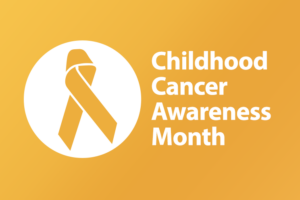Sarah Ford | May 19, 2015
Making Financial Education a Social Responsibility Priority at Companies
In a 2014 survey by PricewaterhouseCoopers, nearly one in four employees admitted that financial issues have been a distraction at work, and 39% had spent three hours or more per week thinking about or dealing with their personal finances, with basic personal financial management and not being able to pay for college being among those concerns. As reported by Time.com writer, Dan Kadlec, “This impacts employee productivity; employee financial stress can cost up to $5,000 per employee per year.” As if those numbers alone aren’t startling enough, Junior Achievement’s 2015 Teens and Personal Finance Survey, sponsored by The Allstate Foundation, was released earlier this month and revealed some of the following staggering discrepancies between teens and their parents’ personal finance and money management views and habits:
Finding #1: Money Management Education
84% of teens look to their parents to learn money management, but 34% of parents do not discuss money with their children and let the “kids be kids”.
Finding #2: Paying for College
48% of teens think their parents will pay for college, but only 16% of parents actually plan to pay their child’s college costs.
Finding #3: Gender Gap
Girls and boys have sharply differing expectations around how much they will earn at their first “real” job: 24% of girls think they will make $15,000 or less at their first job compared to only 16% of boys who feel the same.
Additionally, when it comes to discussing money with their children, there is a significant gender divide in the conversation. Specifically, girls are more likely than boys to say their parents don’t talk to them enough about money management (40 percent versus 24 percent) and about paying for college (34 percent versus 23 percent).

Here to discuss findings from Junior Achievement’s 2015 Teens and Personal Finance Survey, and share some ideas of what companies and their employees can do to address these findings, is Joseph Peri, President of Junior Achievement of New York (JA New York).
Question 1:
According to the PwC study mentioned above, dealing with savings and expenses tops the list of employees’ financial concerns. With 84% of teens surveyed by Junior Achievement looking to learn about money management from their parents, what do you think companies can do to help educate and prepare parents/employees for those conversations?
Joseph Peri:
Businesses can play a meaningful role in educating their employees and their local communities to be more financially literate and empowered. Doing so is not only good for these individuals and families, but it is good, for business and the economy as a whole.
Many companies have identified “financial capability” as a key corporate responsibility, and their engagement with organizations like Junior Achievement allows them to have an impact on both ends of the spectrum. At one end is the employee impact – employees serving as trained JA volunteers, going into the classroom to teach K-12 students personal finance concepts and the importance of planning for the future. Many of our volunteers say they get so much more than they give, because they feel they have a stake in the future success of the students they interact with. On the other end of the spectrum are the students themselves. Businesses are smart to direct their support towards ensuring financially literate young people, since they are our future consumers, savers, employees, entrepreneurs and community leaders.
Question 2:
Clearly, college pays off. Among Americans ages 25 to 32, college graduates earned $17,500 more than high school graduates in 2012 — the largest pay differential ever, according to Pew Research. But just as the value of a college diploma has been rising, the cost of tuition has been rising even faster. We recently posted a story on America’s Charities’ website about the Capital One / Junior Achievement Mobile Finance Park program. How can programs like that, along with other Junior Achievement programs, help parents and their children prepare for affording college, and in what ways can companies get involved in promoting, volunteering or sponsoring those programs?
Joseph Peri:
The continuing debate about college affordability is an important one, and there are many factors at play. JA programs are about encouraging sound decision-making in everyday life, and approaching a changing world with an entrepreneurial mindset. We believe that all students should invest in their own human capital through some kind of post-secondary education to be successful, but that education can take many forms and parents and students should explore all the options.
Capital One / Junior Achievement Mobile Finance Park is a great example of a personal finance and career awareness program that helps middle and high school students experience the “real world” choices adults make in everyday life. They also learn that it takes education, patience, and discipline to achieve short and long-term financial and life goals.
JA programs like Finance Park create opportunities for companies to get involved in the conversation. Before attending their day in the “Park”, students participate in 12 lessons in their classes, preparing them for the simulation. Once they arrive at the Park, they are given a fictional persona – a job, an income level, a marital status, dependents, even credit card and student loan debt. They learn that you can never start planning for college and the future too early in life. Corporate volunteers join the kids at the Park, guiding them through the interactive space and also sharing their personal experiences – successes and even failures in life – with the students. All of the kids leave with a much deeper appreciation for their parents/guardians and the sacrifices it takes to succeed as adults.
Question 3:
As a female millennial, I found your survey’s findings regarding the gender gap quite disheartening. On August 26, 1920, the 19th Amendment to the Constitution was finally ratified, enfranchising all American women and declaring for the first time that they, like men, deserve all the rights and responsibilities of citizenship. Yet here we are in 2015 and young girls in the U.S. clearly still struggle with perceiving themselves on equal ground with their male counterparts – and based on insights from your survey, parents might be partially to blame for that.
How do Junior Achievement’s programs combat this issue? And again, what role can companies play?
Joseph Peri:
As a father of two daughters, this issue is very relevant to me personally. Women have never been in a stronger position to lead, change and shape the economic, social and political landscape but there is still a long way to go to ensure that their efforts and talents are fairly valued. This needs to be addressed in the home, in the classroom, in the workplace – everywhere.
To me, one of the striking data points in JA USA’s 2015 Teens and Personal Finance survey, is that when parents talk to their kids about money, they are talking to boys more often than girls. Forty percent of girls say their parents are not talking to them enough about money management, compared to only 24% of boys. Parents need to be equipping their kids, both boys and girls, with the encouragement and skills they will need to lead financially independent lives.
It’s also important for girls and boys to connect with and see leadership diversity in action. This is where the corporate world can play a role. Diversity provides new perspectives, ideas, solutions and markets. Junior Achievement’s business and community volunteer pool provides young people with a range of inspiring and diverse role models and mentors who cultivate and inspire boys and girls to empower themselves. Many businesses choose to offer JA programs through specially developed Young Women’s Leadership Conferences for this very purpose.
Financial Literacy is a Shared Responsibility
Financial literacy is crucial to maintaining financial stability. As I noted at the beginning of this post about the cost employee financial stress bears on companies, employers should seriously consider the consequences of ignoring this problem. As such, it needs to be a shared responsibility of individuals and businesses alike, encompassing the life cycle of an individual beginning in early childhood and moving well beyond retirement age.
As Junior Achievement of New York’s President, Joseph Peri, has shared with us, Junior Achievement’s programs can play a major role in addressing this issue and in preparing our nation’s future generations with the knowledge and skills they need to be successful through their careers and in their personal lives. By means of employee volunteer efforts, monetary donations, employee financial education programs, and corporate initiatives supporting efforts by nonprofits like Junior Achievement, businesses can play a tremendous role in shaping the future for our youth (while also improving employees’ lives and workplace productivity).
Our thanks to Junior Achievement of New York’s President, Joseph Peri, for taking time to discuss findings from Junior Achievement’s 2015 Teens and Personal Finance Survey, along with sharing ways companies and employees can benefit from and be involved with Junior Achievement’s programs.
To learn more about the work Joseph Peri and his team at Junior Achievement of New York are doing, visit jany.org.
To learn how your company can feature Junior Achievement of New York through an employee giving or corporate social responsibility program at your workplace, contact America’s Charities and learn more about our workplace giving and employee engagement solutions at: www.charities.org/social-responsibility-employee-engagement-solutions.
Get Resources and Insights Straight To Your Inbox
Explore More Articles
Get Resources and Insights Straight To Your Inbox
Receive our monthly/bi-monthly newsletter filled with information about causes, nonprofit impact, and topics important for corporate social responsibility and employee engagement professionals, including disaster response, workplace giving, matching gifts, employee assistance funds, volunteering, scholarship award program management, grantmaking, and other philanthropic initiatives.




